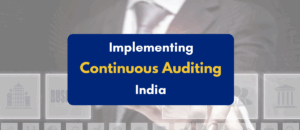Auditing payroll processes is an essential practice to ensure accuracy and compliance with regulations.
Payroll software and a payroll audit checklist can help you complete your audit faster and uncover ways to make your payroll more efficient.
What is a Payroll Audit?
A payroll audit is a detailed review of a company’s payroll processes to make sure everything accurate
It involves verifying employee records, salary calculations, statutory deductions, and tax filings to maintain legal and financial integrity.
Types of Payroll Audits in India
- Internal Audit: Conducted by the company’s finance/HR team
- External Audit: Done by CA firms or third-party auditors for unbiased review
- Statutory Audit: Mandatory for compliance under laws like Companies Act, 2013
Benefits of Regularly Auditing Payroll Processes
Ensures Compliance:
Payroll audits verify adherence to labor laws such as the P), ESI, Minimum Wages Act, and tax regulations.
This minimizes the risk of penalties or legal actions due to non-compliance.
Reveals Flaws:
During a payroll audit, you are more likely to discover payroll errors than outright fraud.
This reduces the likelihood of breaching the IT rules. Early detection of employment tax underpayments can save you money and time. Penalties accumulate on a monthly basis.
Improve Legal Compliance:
Comparing your payroll policies to central, state, and local government bodies is an essential part of the payroll audit process.
Because overtime and state minimum wage laws change on a regular basis, studying compliance laws should always be on your payroll audit checklist.
Discourages Payroll Fraud:
Payroll fraud affects small businesses disproportionately.
Making it known that you perform a payroll account sweep every 6 or 12 months may prevent employees from attempting to defraud you.
Enhances Employee Satisfaction
Accurate and timely payroll processing fosters employee trust and satisfaction.
This contributes to higher retention rates and a motivated workforce.
Improve Operational Efficiency:
Audits streamline payroll processes by identifying inefficiencies, enabling organizations to optimize workflows and reduce administrative burdens.
Supports Financial Planning:
By ensuring accurate payroll accounting and reconciliation with financial records, audits contribute to better financial planning and budgeting
Common Payroll Issues that PKC Can Help You Solve:
- Employee hours and overtime are not tracked
- Records that are incomplete or disorganized
- Overtime wages were incorrectly calculated
- Misclassification of EPF/ESI
- Not considering employee reimbursement expenses
- Paying Bonus or commission outside the payroll
- Deducting Incorrect Tax Deducted at Source
- Not disclosure of Payout Hold cases
- Not Processing Proper Full & Final Settlement
Step-By-Step Process to Perform Payroll Audit
Establish Time Schedule for Payroll Audit:
Establish a time schedule for your payroll audit.
This can be a single pay period or the entire year, particularly if you’re preparing year-end tax forms for your employees.
Examine Employee Data:
This process necessitates communication between HR and payroll. When the systems are linked, there is a less chance of error than when sending spreadsheets back and forth.
Check that everyone who is being paid is an active employee. Ensure that people who are on leave are properly compensated.
Examine Hours Worked & Wages Received:
Check employee hours worked against time cards to ensure that they correspond to the amounts paid.
This is especially true for hourly workers. If you notice a large number of employees with identical time cards, the Human Resources department may need to look into it.
That could indicate that someone is tampering with the time cards.
Examine Different Types of Compensation and Variable Pay:
Overtime pay, bonuses, commissions, and piece-rate information must all be verified. If your employees are tipped, ensure they report their actual earnings for more accurate data.
Overtime pay, bonuses, commissions, and piece-rate information must all be verified. If your employees are tipped, ensure they report their actual earnings for more accurate data
It is also important to check if your company offers vacation pay or shift differentials. Employees rely on this extra pay.
Remember that paying too much can be just as stressful as paying too little.
No one wants to be asked to repay money because payroll made a mistake and paid them double the time when they should have received time and a half six months ago.
Examine and Record Unusual Payroll Transactions:
This is also an area with a high risk of fraud. Consider signing bonuses, relocation compensation, back pay, and prior corrections.
If you process reimbursements through payroll, double-check that this is also correct. It may be necessary to consult with Finance or whoever handles reimbursements.
If an employee receives a large number of reimbursements but does not have a position that requires a lot of travel, this could be a sign of fraud.
Reconciliation of Payroll:
Examine your bank’s activity, whether you have all direct deposit change requests properly documented.
Getting payroll to deposit someone’s pay-check into the spammer’s bank account is a common scam these days. Check your documentation again.
Create a Payroll Audit Report:
Create a payroll audit report and distribute it to those who require it. At the very least, this should include the heads of HR and Finance.
Regular audit documentation can be useful if problems, such as a lawsuit, arise later.
Identify areas for improvement:
Automation is becoming increasingly popular in payroll management, assisting in the elimination of inaccuracies and the reduction of errors.
Data errors will be significantly reduced if you have an all-in-one HRIS, payroll outsourcing services, or accounting software. Always look for ways to improve.
PKC’s Checklist for Auditing Payroll Processes
Verify Employee roster data
- Whether all necessary inputs obtained are obtained during budget/forecast process to ensure adequate manpower & estimates are allocated.
- Employee master file (excel) maintained by HR are protected by logical password and is accessible only to authorized personnel in HR (payroll team)
- Headcount Reconciliation (Exit/Entry of Employees)
- Are all the employees listed active?
- Are any employees terminated,
- furloughed, or placed on a leave of absence?
- Are there any employees missing?
Verify payroll Register Data:
- Are all employee pay rates listed correctly?
- Are the pay periods correct?
- Is payroll completed on time?
Verify Time Clock Data:
- Are employees paid for all time worked?
- Are overtime hours calculated and paid correctly?
- Were all time adjustments recorded correctly and approved?
Verify variable and Other payments:
- Is there documentation outlining variable payments (such as bonuses, commissions, shift differentials)
- Are all variable payments calculated and paid correctly?
- Is there documentation supporting atypical payments (such as retro-pay, back pay, reimbursements, relocation, or contractor)?
Verify Tax Deducted at source and Employee Deduction:
- Are appropriate employee state and local taxes withheld?
- Were all withheld taxes timely remitted to appropriate Departments?
- Are employee portions of health, dental, or vision insurance premiums being calculated and deducted correctly?
- Is there documentation for other deductions, like company property or uniforms?
Reconcile Payroll Data with the General Ledger:
- Do payroll expenses in the GL match payroll register data?
- Are tax remittances to Department, EPF, ESI & PT to respective state recorded properly?
Reconcile Payroll Data with Bank Payment:
- Does the balance in the Payable account match payroll register data?
- Were any employees paid twice?
- Are there any uncashed checks?
- Is there documentation for any paycheck related fees (such as stop payments or reversals)?
- Are there any unaccounted for transactions?
Payroll Audit Expertise by PKC Consulting permeates every step of the auditing process, reinforcing our consultancy’s dedication to excellence, transparency, and trust in managing employee compensation.
Author

Kaviyan.SP

 Expert verified
Expert verified 

